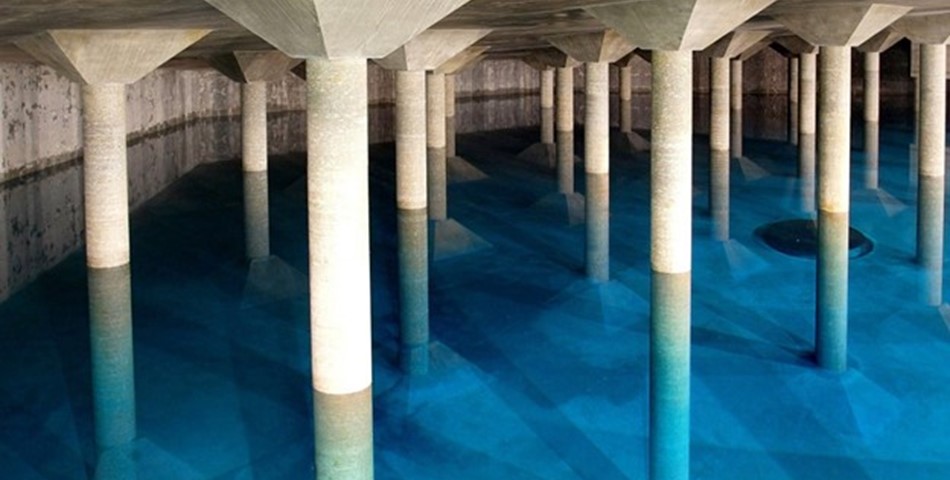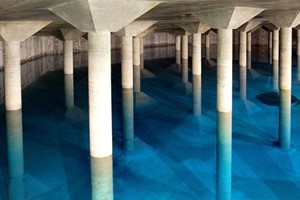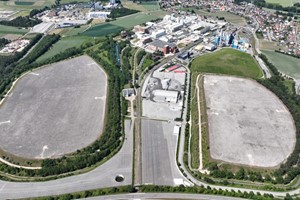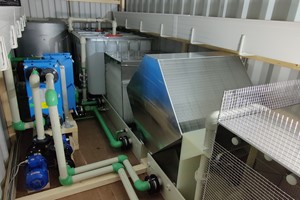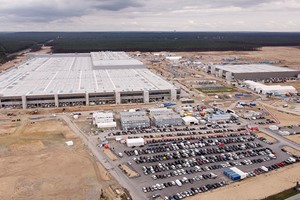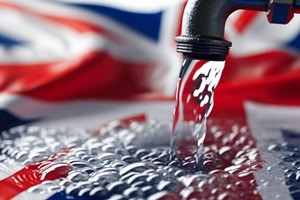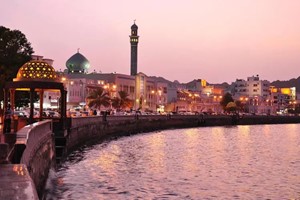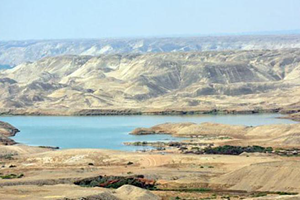The head of state is standing on the edge of his country’s largest freshwater reservoir. He proclaims that by 2050 there will be 30 to 40 percent less water available due to the consequences of global warming. Which is why he is presenting his “water plan”, which sounds more like an emergency plan: Savings must now be made everywhere, pipes are being modernized, and massive investments are being made in the purification and reuse of waste water. In addition, large consumers should pay more for this vital resource in the future.
The scene is not taken from a disaster film, it happened exactly like that. Not in a desert country, but in the middle of Europe, at Lac de Serre-Ponçon in the French Alps. The head of state was Emmanuel Macron. His country recently had to struggle with an exceptional winter drought, which is part of a new climatic situation with recurring phases in which there is far too little rain. Neighboring Germany has also been affected by extreme drought in recent years. And so the question also arises in this country: How secure is the drinking water supply?
Seawater desalination as part of the solution?
Smaller companies in particular are thinking about joining forces with their neighbors. Here and there, new long-distance lines are also being discussed. For example from Lake Constance to Franconia or from the Harz to the south of Saxony-Anhalt in the direction of Halle. More dams could arise. That will cost. According to Karsten Specht, Vice President of the Association of Municipal Enterprises (VKU), the water industry in Germany is currently investing around eight billion euros a year in infrastructure, and this amount could double in the future.
Specht wants to shake things up: “Go into the desert, and the first thing you will scream is water and not bandwidth.” If, for example, new industrial companies such as Intel in Magdeburg or Tesla in Brandenburg settle down, which will have a significant impact on the region’s water use, in the future the question will have to be asked right at the start as to where the water that the companies need should come from. A future hydrogen economy will also require significant amounts of water. “You have to think about how to retain and use rainwater. Or even think about seawater desalination,” says Specht.
So far, the Germans have been spoiled by their abundance of water. In many places, they don’t even know who is taking how much water from the groundwater or from rivers and lakes. In water law, for example, there are de minimis limits. “If someone reports to the authorities that they use less than 1,000 cubic meters of water per year, then no one asks how much they really use,” explains Berthold Niehues, head of water supply at the German Technical and Scientific Association for Gas and Water (DVGW). In addition, there is a presumably unique confusion of authorities. About 800 water management offices, lower or upper water authorities have so far made many rules themselves or at least interpreted them themselves. “How do you determine how much water is available in a region? How high is the water requirement? How much groundwater is being formed?” – Questions that, according to Niehues, each office answers differently. Which makes an analysis of rivers, for example, that flow through sometimes dozens of such water sovereignty areas, hardly possible.
All this is to change with the National Water Strategy. The strategy did not quite spell out another solution to the problem: pollution. Nitrate from fertilizers, pesticides, drug residues, microplastics or chemicals pollute the water, and a lot slips through the filters of the sewage treatment plants. When little rain falls, most rivers consist of 10 to 20 percent treated wastewater, some rivers such as the Neckar, the Rhine or the Ems even more than half. Federal Environment Minister Steffi Lemke (Greens) is now backing a demand from the EU Commission. This has submitted a proposal for a new municipal waste water guideline, according to which a majority of the sewage treatment plants are to be equipped with the so-called fourth cleaning stage in the future. This filters more pollutants. But it is expensive, billions of euros are involved. According to the EU Commission, the manufacturers of these substances should also contribute to the costs in the future.



